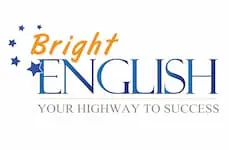Present Perfect Simple
- The Present Perfect Simple connects the past and the present together by relating to an action that occurred in the past but has a result\implication in the present.
- Let’s examine the following sentence: “I have seen this movie before”. The speaker may want to indicate that they are not interested in watching the movie again, and\or they can tell us something about the movie. This is done by relating to an action that originated in the past. The action was performed in the past but it has a result in the present.
We use the Present Perfect Simple to talk about:
- Life professional experiences accomplishments up until now
- Superlatives
- Situations - from the past until the present
- An uncompleted action you are expecting
- How much has been completed of a task
- Changes that affect the present
- How many times something has happened up until now
- Things that have just happened and have a result now
- News
| I have been to New York. (experience) | She has worked for a big company. (experience) |
| This is the best English lesson I've ever had. (superlative) | This is the biggest swimming pool they have ever built. (superlative) |
| I have been in New York for 15 years. (state from the past until now) | He has known Jack for 9 years. (state from the past until now) |
| He hasn't applied for the job yet. (uncompleted action) | You haven't bought tickets for the concert yet. (uncompleted action) |
| We have booked the caterers already, but haven't sent the invitations yet. (how much has been completed of a task) | I have prepared the food, called the guests, but haven't made the cake. (how much has been completed of a task) |
| The weather has become colder. (changes) | The cost of living has gone up. (changes) |
| It has rained 4 times so far. (how many times something has happened until now) | She has taken the test twice. (how many times something has happened until now) |
| I have just written a letter to him. (something that just happened) | The shop has just closed. (something that just happened) |
| Maya and Ben have gotten married. (news) | We have moved into a new neighborhood. (news) |
Present Perfect Simple Structure:
I:
I have studied at Bright English.
I have not studied at Bright English.
Have I studied at Bright English?
We:
Ben and I (we) have studied at Bright English.
We have not studied at Bright English.
Have we studied at Bright English?
You:
You have studied at Bright English.
You have not studied at Bright English.
Have you studied at Bright English?
They:
Ben and Maya (they) have studied at Bright English.
They have not studied at Bright English.
Have they studied at Bright English?
He:
Ben (he) has studied at Bright English.
He has not studied at Bright English.
Has he studied at Bright English?
She:
Maya (she) has studied at Bright English.
She has not studied at Bright English.
Has she studied at Bright English?
It:
It (the computer) has studied well.
It has not studied well.
Has it studied well?
Present Perfect Simple Rules:
Subject + have\has + past participle (v3)
- We use the d,ed,ied verb form in regular verbs instead of the v3(broken). i.e. “I have studied”
- I, we, you, they = have
- He, she, it = has
- We use have\has to make questions.
- We use haven’t\hasn’t to make negatives.
- Unlike do,does,did, have\has auxiliaries do not cancel conjugation of the main verb. I haven’t seen \ I didn’t see
Common time expressions in the Present Perfect Simple
Recently, so far, until now, up until now, in my life, ever, never, before, up to date, for, since, already, yet, just, today, this morning, this afternoon, this evening, this week, this month, this year.
